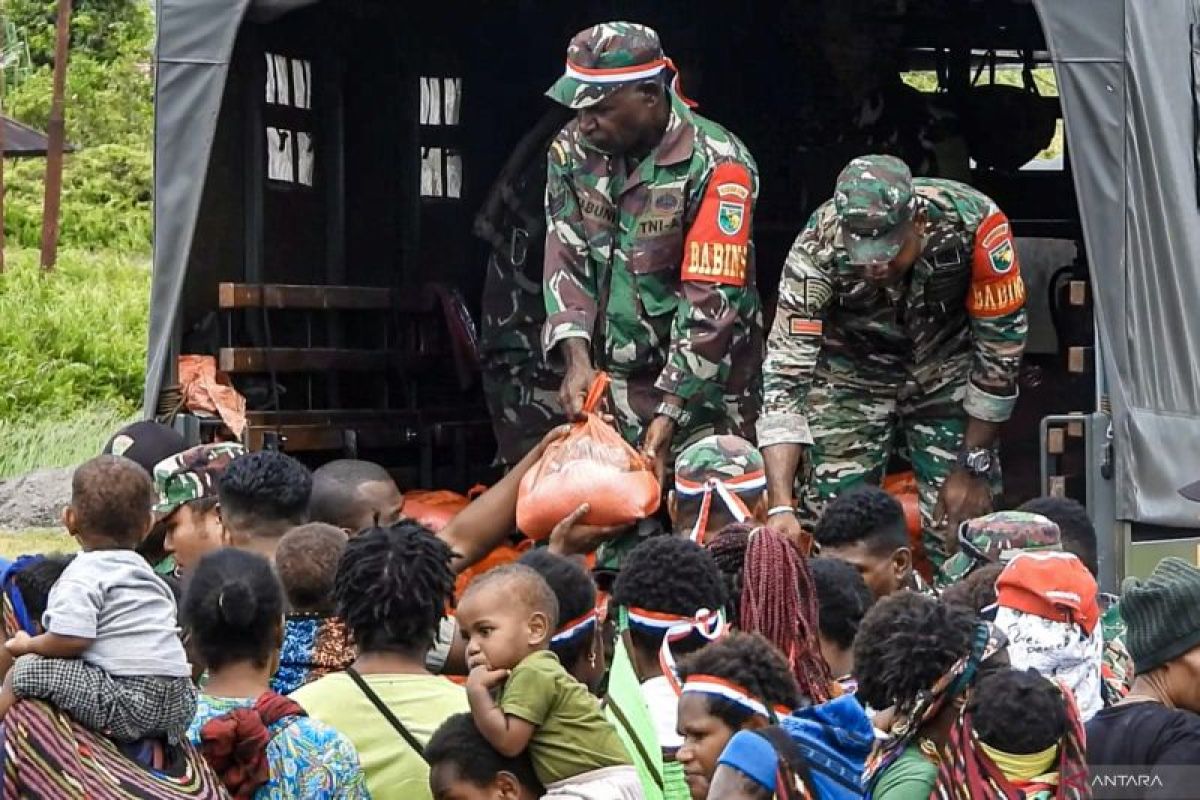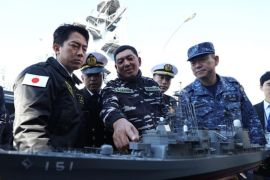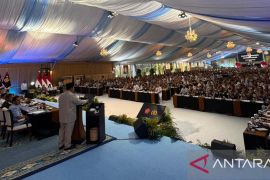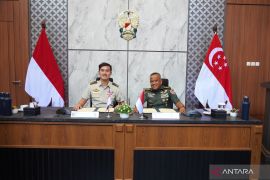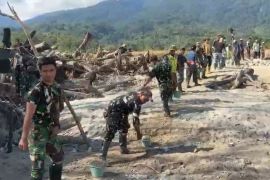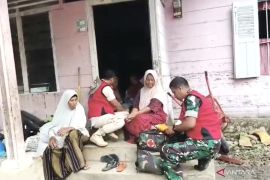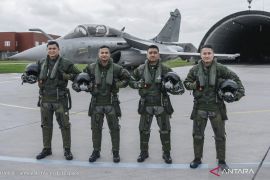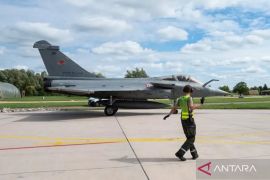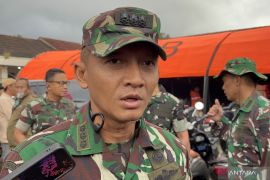This adaptive nature helps the institution to maintain its main task of defending the Unitary State of the Republic of Indonesia (NKRI).
The institution has gone through various military events, including military operations in East Timor in 1975, military operations in Aceh in 1990-1998 and 2003-2004, handling acts of terrorism, to the most recent one, facing the separatist Armed Criminal Group (KKB) in Papua.
The TNI has also intervened in military operations other than war (MOOTW) in the humanitarian field.
Some of the most prominent are deploying peacekeeping troops to Lebanon, sending troops and medical teams during natural disasters or large-scale accidents, helping distribute vaccines during the COVID-19 pandemic, and being involved in securing and delivering election logistics.
The TNI has also progressed in the procurement of the main weapons system (alutsista), starting from ground combat vehicles, jet and Hercules aircraft, amphibious tanks, and KRI (warships), to submarines, with an increase in both quantity and quality.
Such efforts were made to prioritize an adaptive and modern outlook to strengthen Indonesia’s defense amid the rising threat of military power from other countries.
However, in the modern day, war is no longer a contest of missile explosive power or a strategy of troop invasion.
Currently, the world is facing the phenomenon of cyber warfare, a war without weapons that can destroy a country.
This cyber warfare occurs in cyberspace and relies on attacks using propaganda information, espionage, and sabotage of a government's data security system.
Through designated information attacks, people in the country can be indoctrinated. This condition can trigger chaos in the country due to propaganda.
The worst part is that cyber war will continue to develop along with technological developments.
The TNI has paid special attention to this issue by forming a new cyber force.
New forces
President-elect Prabowo Subianto, with his military background, is considered adept at supporting TNI’s progress in the future.
He is also considered to understand the concept of future defense and design a relevant plan to strengthen the TNI, including in forming this Cyber Force.
Coordinating Minister for Political, Legal, and Security Affairs Hadi Tjahjanto stated that President Joko Widodo (Jokowi) and Prabowo have agreed to the formation of this Cyber Force.
Jokowi and Prabowo have considered cyber defense to be prioritized in the future.
Military observer and Co-Founder of the Institute for Security and Strategic Studies (ISESS) Khairul Fahmi views this cyber force as a promising new force for the Indonesian military.
The cyber force is considered to be the country's spearhead in facing information attacks leading to propaganda.
However, building a cyber force requires a foundation of thought, law, credible human resources (HR), and large amounts of money.
Challenges
Establishing a cyber force must be done carefully. The government must judiciously calculate the long-term and short-term steps.
The first step of this cyber force formation is preparing a legal basis as the main framework for determining the main tasks.
The law regulating cyber work must also be clear and disseminated extensively to avoid clashes with other institutions with similar duties, such as the National Cyber and Crypto Agency (BSSN).
The government must also ensure that the Cyber Law will not backfire, as it limits the community's own space in the cyber world. Hence, the preparation of the Cyber Force Law must be transparent and involve academics and community leaders.
After regulating the law and technical regulations, the government should prepare the cyber force personnel recruitment system.
The TNI can conduct several recruitment approaches, such as recruiting soldiers from several ranks, according to their competencies to partake in cyber defense education.
The TNI can also recruit civilians with competencies in the cyber field. Recruitment can be carried out from the high school or vocational school level up to the university level.
Personnel with civilian or military backgrounds must also pass strict selection in terms of expertise and personality since they will be handling national strategic data.
Lastly, the government must go all out in disbursing a large budget for cyber force formation.
The largest capital is needed for the procurement of modern technology to support work and a series of training and education programs to realize quality human resources.
The disbursement of large amounts of funds must also be carried out consistently to ensure the maturity of cyber force and its effective work in five to 10 years.
Political support
Prabowo’s new role in the government is expected to support the formation of the cyber force, from political support to budgeting.
Furthermore, he is known to have good connections in the international world that could build military diplomacy with other countries.
Diplomacy can be carried out in various forms, such as military cooperation that includes war exercises and cooperation in strengthening the region to the exchange of defense knowledge.
With this opportunity, cyber knowledge can be obtained from other countries.
The TNI can also establish cooperation in the field of digital space defense with other countries.
The future of this cyber force lies in the hands of the next government.
All parties expect improvement from the next government, including in the defense sector. The presence of a cyber force can strengthen the defense system to maintain the sovereignty of the Republic of Indonesia.
Related news: President Jokowi orders cyber force formation: minister
Related news: New govt to continue TNI's cyber military force development: Army
Editor: Rahmad Nasution
Copyright © ANTARA 2024
